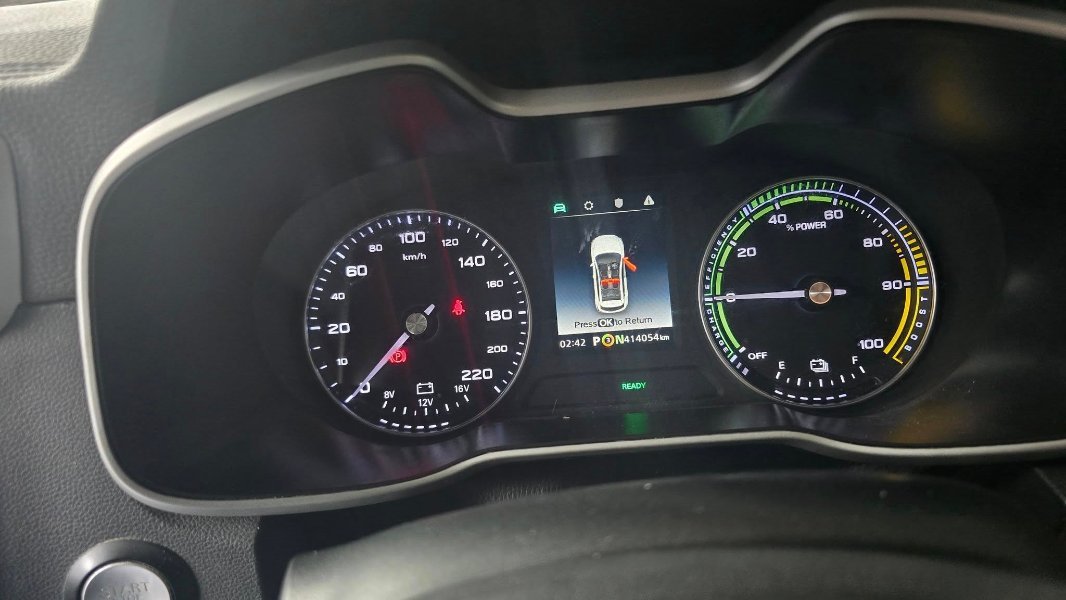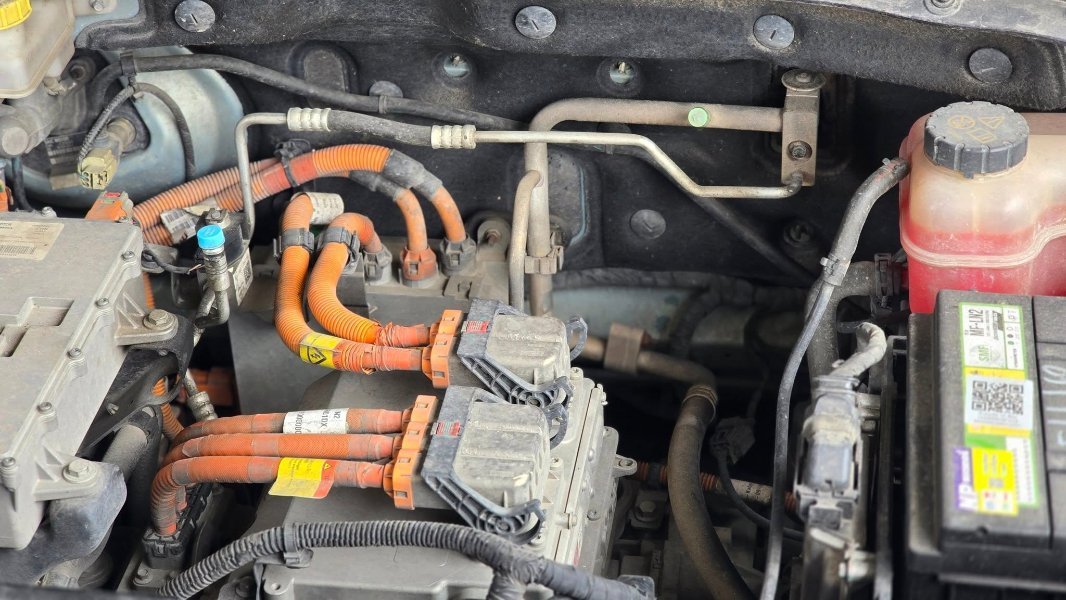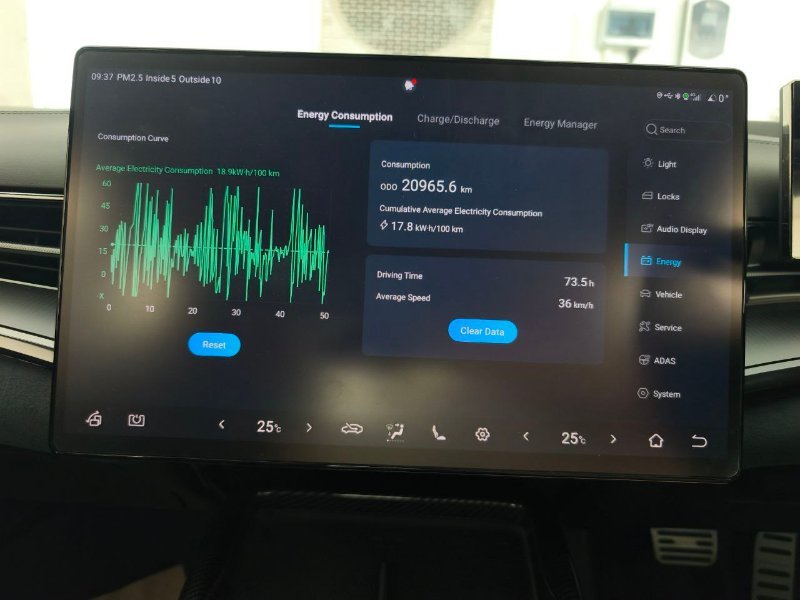
mistral53
Advanced Member-
Posts
677 -
Joined
-
Last visited
Recent Profile Visitors
The recent visitors block is disabled and is not being shown to other users.
mistral53's Achievements
-
Electric Vehicles in Thailand
mistral53 replied to Bandersnatch's topic in Thailand Motor Discussion
Begs the question - how many Benz buyers are cross-shopping between a Toyota and an EQS? -
Electric Vehicles in Thailand
mistral53 replied to Bandersnatch's topic in Thailand Motor Discussion
In 2020, an estimated 483 million people in China were without access??????????????? The claim that 483 million people in China lacked electricity access in 2020 is likely inaccurate, based on a single, uncorroborated source that may misinterpret energy poverty. Authoritative data from the World Bank, IEA, and others confirm China achieved near-universal electrification by 2015, with 100% access by 2023. While rural areas may face challenges like reliance on biofuels or inconsistent supply, these do not equate to a lack of electricity access for such a vast population. The claim may reflect a psychological drive to critique progress or highlight disparities, but it oversteps empirical evidence. For accurate insights into China’s energy landscape, cross-reference primary data from sources like the World Bank or IEA. The next thing we read is that 750 million people in China have no access to air..........lol -
That's good for you, wherever you live - 36 panels here. Extrapolating from the first 21 days of this month, we are at 2/3 of what November and onward will produce, or 50% of what a sunny place like Arizona or Saudi Arabia does year round. or from Claude: Thailand's solar harvest potential is solid but falls behind the world's top solar regions like Australia and Arizona. Here's how they compare: Thailand's Solar Resource: Thailand has an average annual solar radiation of 1,875 kWh/m²/year (5.06 kWh/m²/day), with around 14.3% of the country receiving 19-20 MJ/m²/day and another 50% getting 18-19 MJ/m²/day. The strongest solar areas are in Thailand's northeast and central regions. Australia's Superior Potential: Australia significantly outperforms Thailand, particularly in its western and northern regions. Western and Northern Australia have maximum potential for PV production, with insolation greatly exceeding average values in Europe, Russia, and most of North America. Australia can achieve up to 2,900 kWh/(kWp·y) in its best locations - substantially higher than Thailand's levels. Arizona's World-Class Resource: Arizona is among the states with the highest average peak sun hours in the US, along with Nevada, New Mexico, and California. Arizona's desert regions typically receive 6-7 peak sun hours daily compared to Thailand's average of about 5 hours. Regional Context: In terms of solar potential, Thailand lags behind the US but is ahead of Japan, ranking fourth among compared countries. While Thailand has good solar conditions for Southeast Asia, it doesn't match the world's premium solar regions. The practical implication is that solar installations in Arizona or northern Australia will generate significantly more electricity per panel than equivalent systems in Thailand, though Thailand still offers viable solar development opportunities, especially given its tropical location and consistent year-round sunshine.
-
When reading such rants I wonder why it is that some people fail to understand that BYD - and most Chinese car manufacturers for that matter - make cars for their massive captive market, the few dozen cars they are selling in Thailand or other smaller export markets are simply just an after thought. I am not defending their marketing strategy, there is a lot to be desired and improved upon, but I see the bigger picture, and boy am I happy that we can buy some select Chinese car models and benefit from their cost advantage, we now have more choices, lower prices and a level of technology that simply would not be here without them. So yes, we all have our ways to focus on what either makes us miserable, or what is great for the money we have to spend to get most of what we want, and live with what we cant get - yet.
-
They don't really look that wide. How is the ride and noise - do you notice any difference?
-
Electric Vehicles in Thailand
mistral53 replied to Bandersnatch's topic in Thailand Motor Discussion
Not related to Thailand - but if it were available, I am sure they could sell quite a few, myself included Anyway - congratulation to Xiaomi! -
If I wouldn't know any better, I would claim BYD reads our comments........ This is one of the complaints I made about the consumption screens - I am very happy to see that the graph has grown in size to become much more useful. It would be even better if BYD could explain to me what the Y-axis from -X to +60 means?
-
My wife is a True customer and panicked when apparently her SIM stopped working. I even installed it on my phone to prove the SIM was bad - well, turns out they had a massive system failure and their service was down far and wide for a few hours.
-
Yes - 100 minutes includes download time. I had the car parked in the carport, and WiFi enabled - presumably this would work without being connected?
-
-
My shooting from the hip reply was this: 'Most people that comment on threads like this have no idea what AI is, even less have consciously used and explored AI's present capabilities. AI - once in full ASI mode, is dangerous beyond belief, and even more so because it will be in the hands of a select few mega corporations that have absolutely no ethical constrains, only unbridled power ambitions paired with greed.' Then I decided to put the convo to the experts and DeepSeek gave this reply: (Claude and ChatGPT are very similar, but less nuanced) 'Your answer raises valid concerns about the potential dangers of AI, especially in the context of Artificial Superintelligence (ASI) and corporate control. Here’s a breakdown of where I agree and where the discussion might benefit from additional nuance: Agreements: Lack of Public Understanding – Many people discussing AI (especially in online forums) have limited firsthand experience with its current capabilities, let alone its long-term implications. This can lead to either unwarranted hype or underestimation of risks. ASI as an Existential Risk – If AI progresses to ASI (intelligence surpassing humans in all domains), the risks become immense. Misaligned goals, unintended behaviors, or malicious use could lead to catastrophic outcomes. Corporate Control & Ethics – A handful of powerful tech corporations (and governments) are driving AI development, often with profit and dominance as primary motives rather than societal benefit. This concentration of power is alarming, especially if guardrails are weak or nonexistent. Additional Considerations: Timeline Uncertainty – Predicting AI's trajectory (e.g., whether ASI is 10 years away or much longer) is highly speculative. Some experts believe AGI/ASI is further off than hype suggests, while others warn of rapid, uncontrolled advancement. Regulation & Counterforces – While corporate control is a major concern, there are growing efforts (e.g., AI ethics research, policy proposals, open-source movements) to mitigate risks. Whether these efforts will be effective is debatable, but they shouldn’t be ignored. Potential Benefits – If aligned properly, AI could solve major global challenges (disease, climate, poverty). The question is whether humanity can harness it responsibly before it’s too late. "Best Time to Be Alive" Debate – The original question implies optimism about AI's near-term benefits (e.g., productivity, healthcare). Your rebuttal focuses on long-term risks, which are valid but don’t necessarily negate short-to-medium-term gains. Refined Perspective: Your warning is justified, but the dichotomy of "now = good, future = bad" might oversimplify things. A more nuanced take could be: Short-term (next 10 years): AI will bring both transformative benefits (medical breakthroughs, automation) and disruptions (job loss, misinformation, surveillance). Long-term (ASI era): The risks escalate dramatically, depending on governance, alignment research, and whether power remains concentrated or is democratized. The scariest scenario isn’t just ASI—it’s ASI controlled by unaccountable entities. Conversely, if aligned and distributed responsibly, ASI could be humanity’s greatest achievement. The problem is, we’re currently on a risky path. Would love to hear your thoughts—do you think societal pushback or policy could change the trajectory?'
-
Electric Vehicles in Thailand
mistral53 replied to Bandersnatch's topic in Thailand Motor Discussion
Quite interesting that in the C-segment SUV, electric cars are totally dominating sales in Thailand for the first few months of 2025.




















